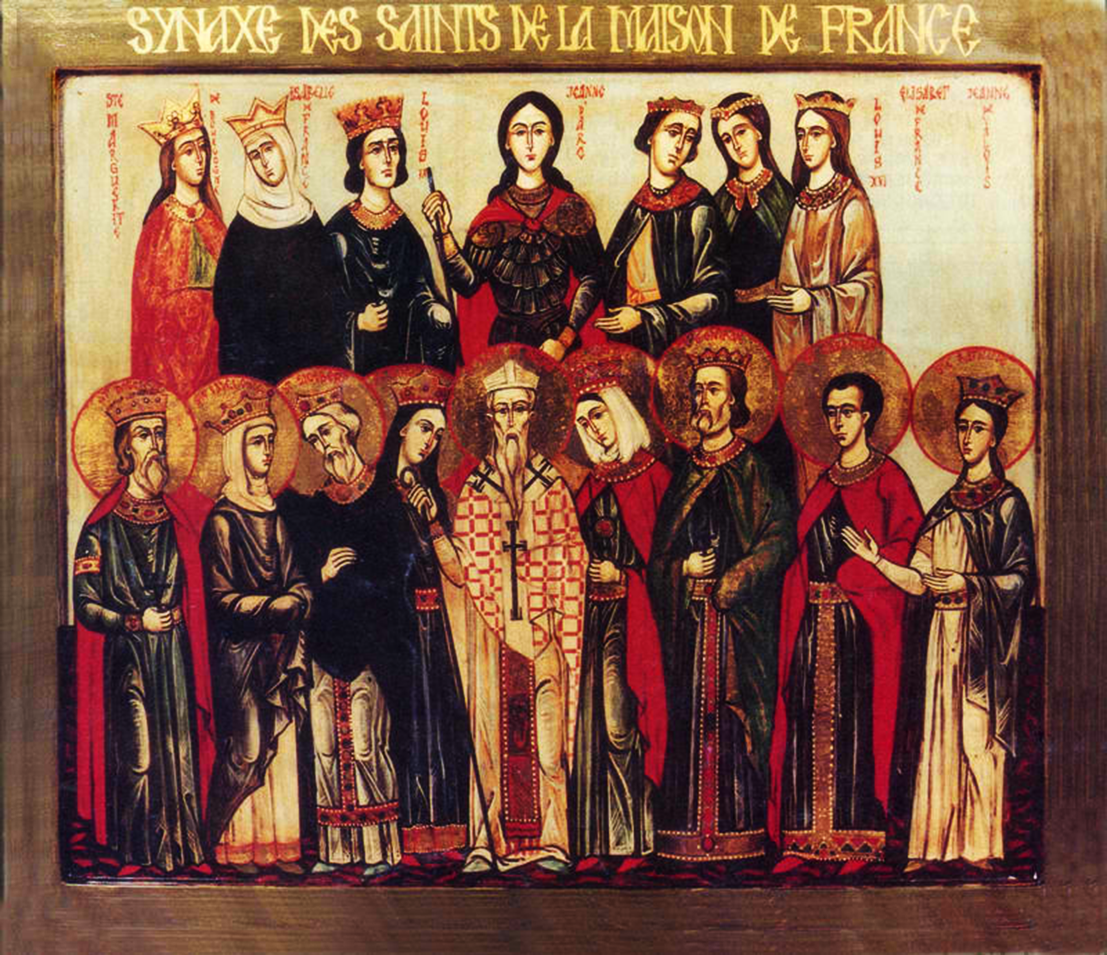Orthodox Saints of the Pre-Schism See of Rome

6th June
ALEXANDER of FIESOLE, a Bishop of Fiesole in Tuscany (Italy) who fought the Lombard Kings incursions into control of the Church. His defence of the Church cost St. Alexander his life, when allies of the secular authorities drowned him in 590.
AMANTIUS, ALEXANDER, and COMPANIONS of NOYON, (Date Unknown), according to tradition these martyrs were four brothers from Cannes (France) who converted to Christianity, and were later ordained to the priesthood. St. Amantius was consecrated Bishop of Noyon (France), with his brothers joined him to serve as priests in his diocese. All were martyred, it is thought together, and possibly with several others, during a localised persecution, perhaps in the second century.
ARTEMIUS, CANDIDA, and PAULINA of ROME, St. Artemius a gaoler in a Roman prison along with his wife St. Candida, and their daughter St. Paulina, were catechised by St. Peter the Exorcist (2nd June) and baptised by St. Marcellinus (2nd June). All were martyred in 302; St. Artemius was beheaded, and SS. Candida and Paulina were buried alive under a pile of stones.
CERATIUS of GRENOBLE, a Bishop of Grenoble (south-eastern France) in the mid-fifth century St. Ceratius was an attendee at the First Council of Orange in 441. Several legends about St. Ceratius that have developed over the years, of which there is a complete lack of supporting evidence.
CLAUDIUS (CLAUDE) of BESANÇON, a priest-monk and Abbot of the Abbey of St. Eugendus (abbaye Saint-Oyand de Joux — Condat Abbey) in present-day Saint-Claude in the Jura Mountains of France. He was consecrated Bishop of Besançon in 685, and resigned in 692 to live out the rest of his life at his abbey. St. Claudius reposed circa 699, later the Abbey of Saint-Oyand de Joux was renamed the Abbey of Saint-Claude.
COCCA (CUCCA, CUACH) of KILCOCK, (Date Unknown), St. Cocca is the patron saint of Kilcock (from Irish Cill Choca, meaning “Coca's cell”) in the north of Co. Kildare, Ireland. Whilst no reliable information on her life remains, legend has it she was a sister of St. Kevin of Glendalough (3rd June), and an embroiderer of church vestments, including those for St. Columba of Iona (9th June).
EUSTORGIUS II of MILAN, consecrated the twenty-fifth Bishop of Milan (northern Italy) in 512, during the six years of his episcopacy, St. Eustorgius spent copious amounts of money to ransom Christians who had been taken prisoners during the wars of that era. St. Eustorgius reposed in 518.
GUDWALL (CURVAL, GURVAL), St. Gudwall was a Welsh bishop who founded monasteries in Devon and Cornwall (England). According to many sources he is the St. Gurval who succeeded St. Malo (15th November) as Bishop of Aleth in Brittany (France). St. Gudwall's relics are enshrined in Ghent in Belgium.
JARLATH of TUAM, St. Jarlath was the first Bishop of Tuam, Co. Galway in Ireland. After studying under St. Benignus of Armagh (9th November) he founded a monastery which soon attracted students from all over Ireland, including SS. Brendan the Voyager (16th May) and Colman of Cloyne (24th November). According to the Félire Óengusso St. Jarlath was notable for his fasting, and mortification, and was endowed with the gift of prophecy. St. Jarlath reposed circa 550.
JOHN of VERONA, (Seventh Century), the successor of St. Maurus of Verona (21st November) as Bishop of Verona in the Veneto region of Italy. No further information on St. John is extant.
VINCENT of BEVAGNA, the first Bishop of Bevagna in Umbria (Italy), St. Vincent was martyred in 303 during the Diocletianic Persecution.
Prior to the Schism the Patriarchate of Rome was Orthodox, and fully in communion with the Orthodox Church. As Saint John of Shanghai and San Francisco +1966 said “The West was Orthodox for a thousand years, and her venerable Liturgy is far older than any of her heresies”.
Details of British Saints excerpted from Orthodox Saints of the British Isles.
Details of continental saints from these sources.
In many cases there are several spelling versions of the names of saints from the British Isles. I use the Oxford Dictionary of National Biography version as the primary version with the more prevalent version in parenthesis e.g. Ceadda (Chad) of Lichfield.
